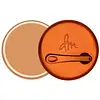Danessa Myricks Beauty Yummy Skin Blurring Balm Powder Versus Lys Beauty Higher Standard Satin Matte Cream Blush
What's inside
What's inside
 Key Ingredients
Key Ingredients

 Benefits
Benefits

 Concerns
Concerns

 Ingredients Side-by-side
Ingredients Side-by-side

Magnesium Carbonate
AbsorbentIsohexadecane
EmollientC13-15 Alkane
SolventIsododecane
EmollientDimethicone
EmollientSqualane
EmollientSynthetic Wax
AbrasiveSynthetic Candelilla Wax
EmollientKaolin
AbrasiveTocopheryl Acetate
AntioxidantLinum Usitatissimum Seed Oil
PerfumingZingiber Officinale Root Oil
MaskingHydrolyzed Sodium Hyaluronate
Skin ConditioningGlyceryl Behenate
EmollientLimnanthes Alba Seed Oil
Skin ConditioningMicrocrystalline Wax
Emulsion StabilisingPolyethylene
AbrasiveStearoxy Dimethicone
EmollientCI 77891
Cosmetic ColorantIron Oxides
CI 19140
Cosmetic ColorantMagnesium Carbonate, Isohexadecane, C13-15 Alkane, Isododecane, Dimethicone, Squalane, Synthetic Wax, Synthetic Candelilla Wax, Kaolin, Tocopheryl Acetate, Linum Usitatissimum Seed Oil, Zingiber Officinale Root Oil, Hydrolyzed Sodium Hyaluronate, Glyceryl Behenate, Limnanthes Alba Seed Oil, Microcrystalline Wax, Polyethylene, Stearoxy Dimethicone, CI 77891, Iron Oxides, CI 19140
C12-15 Alkyl Benzoate
AntimicrobialDiethylhexyl Carbonate
EmollientDicaprylyl Carbonate
EmollientMica
Cosmetic ColorantSynthetic Wax
AbrasiveKaolin
AbrasiveIsohexadecane
EmollientPolyglyceryl-2 Triisostearate
EmulsifyingDi-C20-40 Alkyl Dimer Dilinoleate
Skin ConditioningBoron Nitride
AbsorbentC18-38 Alkyl Hydroxystearoyl Stearate
EmollientTocopheryl Acetate
AntioxidantPersea Gratissima Oil
Skin ConditioningLecithin
EmollientPolyhydroxystearic Acid
EmulsifyingEthylhexyl Palmitate
EmollientIsopropyl Myristate
EmollientIsostearic Acid
CleansingPolyglyceryl-3 Polyricinoleate
EmulsifyingPhenoxyethanol
PreservativeSorbitan Oleate
EmulsifyingSorbitan Laurate
EmulsifyingMyristyl Malate Phosphonic Acid
Skin ConditioningCI 77891
Cosmetic ColorantIron Oxides
CI 15850
Cosmetic ColorantCI 45410
Cosmetic ColorantCI 19140
Cosmetic ColorantC12-15 Alkyl Benzoate, Diethylhexyl Carbonate, Dicaprylyl Carbonate, Mica, Synthetic Wax, Kaolin, Isohexadecane, Polyglyceryl-2 Triisostearate, Di-C20-40 Alkyl Dimer Dilinoleate, Boron Nitride, C18-38 Alkyl Hydroxystearoyl Stearate, Tocopheryl Acetate, Persea Gratissima Oil, Lecithin, Polyhydroxystearic Acid, Ethylhexyl Palmitate, Isopropyl Myristate, Isostearic Acid, Polyglyceryl-3 Polyricinoleate, Phenoxyethanol, Sorbitan Oleate, Sorbitan Laurate, Myristyl Malate Phosphonic Acid, CI 77891, Iron Oxides, CI 15850, CI 45410, CI 19140
Alternatives
Ingredients Explained
These ingredients are found in both products.
Ingredients higher up in an ingredient list are typically present in a larger amount.
CI 19140 is also known as Tartrazine. Tartrazine is a synthetic dye used in cosmetics, foods, and medicine to add a yellow color.
Tartrazine is created from petroleum and is water-soluble.
Some people may experience allergies from this dye, especially asthmatics and those with an aspirin intolerance.
Learn more about CI 19140Ci 77891 is a white pigment from Titanium dioxide. It is naturally found in minerals such as rutile and ilmenite.
It's main function is to add a white color to cosmetics. It can also be mixed with other colors to create different shades.
Ci 77891 is commonly found in sunscreens due to its ability to block UV rays.
Learn more about CI 77891Isohexadecane is added to enhance texture, emulsify, and to help cleanse. It is an isoparrafin. It is a component of petrolatum.
Due to its large size, Isohexadecane is not absorbed by the skin. Instead, it sits on top and acts as an emollient. Emollients help keep your skin soft and smooth by trapping moisture within.
Isohexadecane is often used in products designed to help oily skin. It is lightweight and non-greasy while helping to moisturize. When mixed with silicones, it gives a product a silky feel.
Learn more about IsohexadecaneKaolin is a clay. It is used for oil control and to help minimize pores. Like other clays, kaolin has the ability to absorb excess sebum or oil. This can help clean out pores and mattify the skin.
Some types of kaolin may have exfoliating properties. When water is added to kaolin, it becomes a paste with small abrasive particles.
Most kaolin is a white color, but may be pink/orange/red depending on where it comes from.
The name 'kaolin' comes from a Chinese village named 'Gaoling'. Kaolin clay comes from rocks rich in kaolinite. Kaolinite, the mineral, has a silicate layered structure. Kaolinite is formed from chemical weathering of aluminum siilicate minerals.
Besides skincare, kaolin is commonly used to make glossy paper, in ceramics, toothpaste, and as medicine to soothe stomach issues.
Learn more about KaolinSynthetic Wax is created from fossil fuels such as natural gas. It is used to enhance texture, adjust pH, and as an occlusive.
It may also be used as an abrasive ingredient to exfoliate the skin.
Synthetic Wax may not be fungal acne safe.
Learn more about Synthetic WaxTocopheryl Acetate is AKA Vitamin E. It is an antioxidant and protects your skin from free radicals. Free radicals damage the skin by breaking down collagen.
One study found using Tocopheryl Acetate with Vitamin C decreased the number of sunburned cells.
Tocopheryl Acetate is commonly found in both skincare and dietary supplements.
Learn more about Tocopheryl AcetateThis ingredient is a combination of red, black, and yellow iron oxide pigments. This combination of colors is usually found in foundation, because it results in a "skin" color.